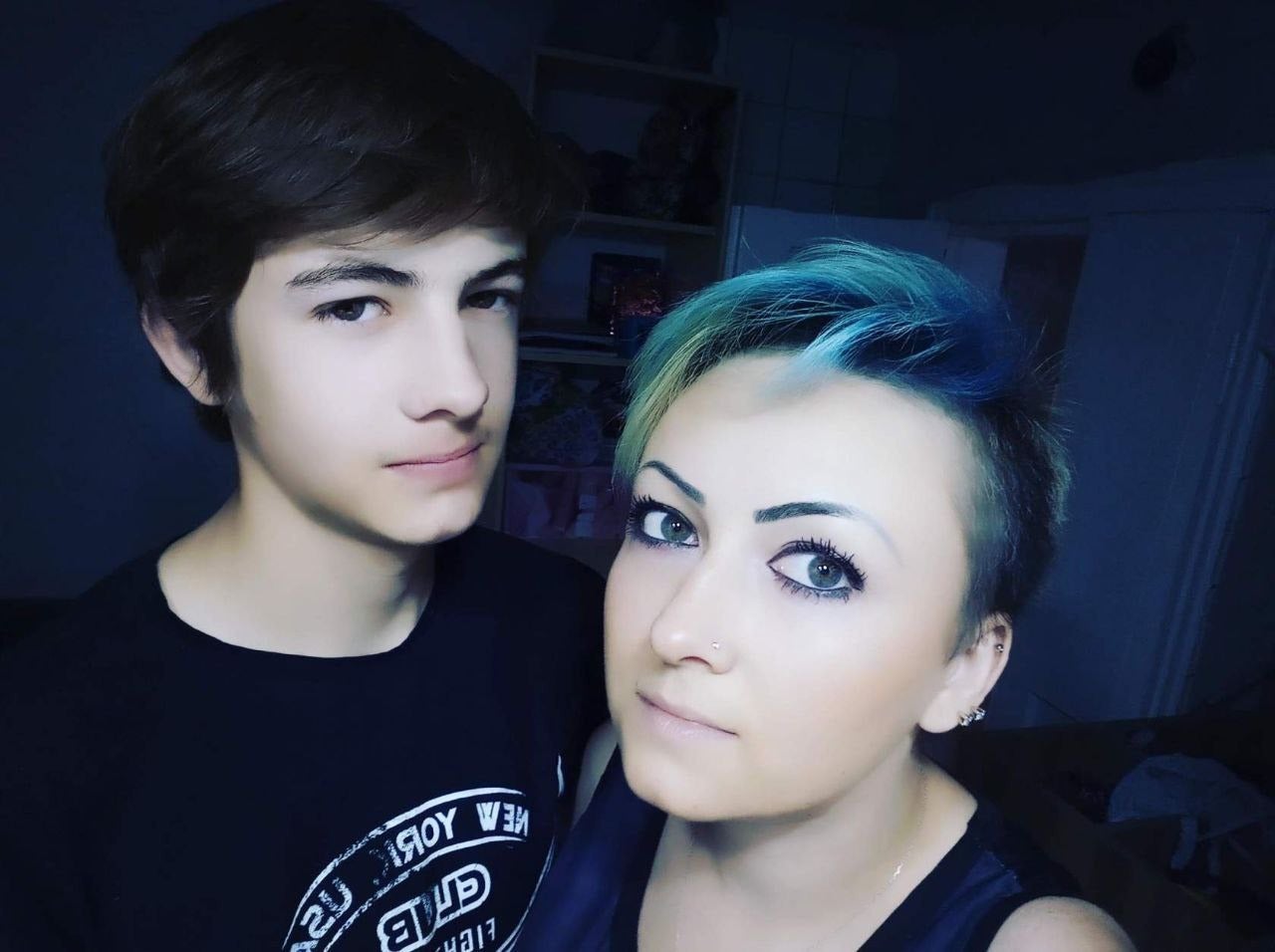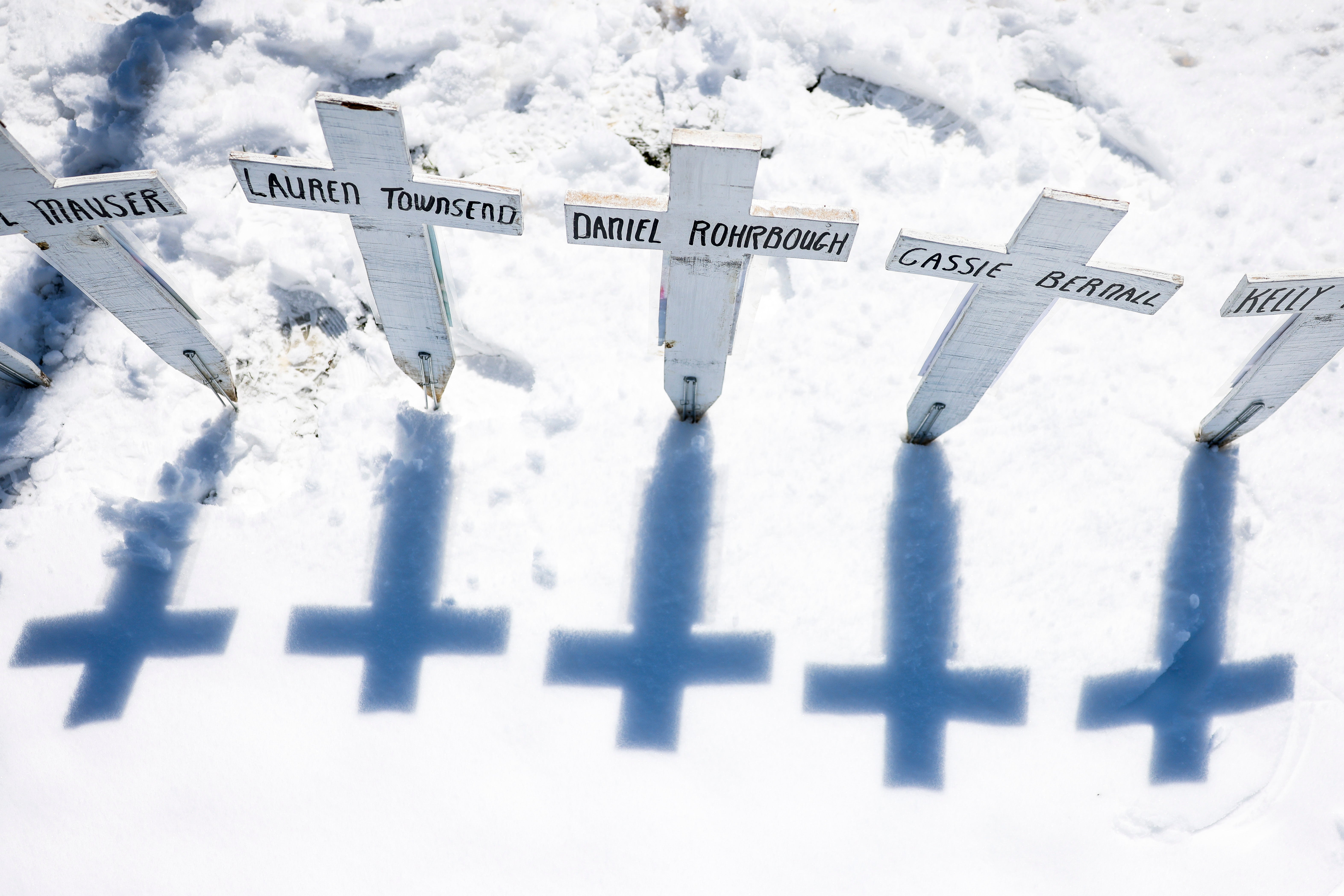‘It’s easier to catch schoolchildren than terrorists’: The Kremlin’s hunt for imaginary ‘Columbine’ killers
Russia has arrested teenagers in a pre-emptive attempt to stop potential school massacres, regardless of whether or not they plan to carry out attacks


The cases follow a recognisable pattern. Suspects in their mid-teens, with a history of social problems and/or anarchism. An early morning, demonstrative raid on their parents’ houses. A trip to the state investigative committee. Identical charges alleging preparation of “Columbine-style” attacks – a reference to the 1999 US school shooting that left 13 dead.
While Russia has not experienced anything like the frequency or scale of armed school attacks as the United States, it has a worrying enough history. In 2018 alone, there were three: A knife attack in Perm, Ural region. An axe and Molotov cocktail attack in Ulan-Ude, eastern Siberia. And a shooting and explosion at a college in Kerch, in annexed Crimea, killing 21.
The Kerch tragedy in particular sparked a frenzied search for potential teenage radicals. Russia’s security agency, the FSB, was charged with averting further tragedy. And on paper, they delivered with dazzling success. In 2020 alone, the agency reported that at least 69 potential “Columbine” attacks had been intercepted.
In reality, the evidence collected against supposed teenage killers isn’t always watertight. Prosecutors’ cases generally rely on the contributions of agents provocateurs in chat rooms, working under the close watch of security services. There seems to be more than an element of manipulation and target-ticking at play.
And the probability of innocent teenagers being caught up in the search does not seem to have been given much thought.
In Siberian Krasnoyarsk, 14-year-old Alyona Prokudina’s problems began with a benign enough thought: that killing people was bad. Sometime in spring 2019, she read about the Columbine attack, and became obsessed by it. She chatted to friends about it on social media. And with her mother’s help, she recorded a video about why the Columbine killers were wrong.
Four months later, at five in the morning, a SWAT team arrived at Alyona’s family home. The searches, which carried on for three hours, turned over everything in her room and the garage. “They even smashed open the dog’s kennel,” recalls her father, Dmitry Prokudin. “God knows what they were trying to find.”

Dazed, Alyona’s mother agreed to the officers’ request to sign papers agreeing to her daughter’s “voluntary” hospitalisation in a psychiatric unit. She had second thoughts three days later, and asked for her daughter to be returned, but by then the order had become compulsory. Alyona was only allowed home two weeks later.
A case from the southwestern city of Saratov has the same common elements. For Igor S, 14, it all started when he was asked to do a school project. An “outsider” and military aficionado, he chose to cover the theme of school shootings. Together with his mother, Nataliya Kim, he put together a PowerPoint project that explained to kids what to do if they ever found themselves in such a situation.
The teenager researched his project using open-source websites. But unbeknown to either his teacher or his mother, he also joined a social media chat room about Columbine. He was in the group for no more than a week – but that was enough to be noticed by a girl called Liza, who later contacted him and suggested they meet.
Liza persuaded Igor and a friend to come with her to an abandoned bomb shelter. There, a sawn-off shotgun miraculously appeared. Igor picked it up, and a team of officers stormed in and arrested him. Liza, who had said she was 17 but was at least 19, was left alone. She appeared to have been collaborating with the security services.
Authorities insist Igor had hidden the gun there – and refer to a recorded confession in which he said he intended to kill 40 people.
His mother tells The Independent that the confession made no sense. The bomb shelter was a well-known local meeting point for youngsters, she argues. The boys were “beaten blue” and threatened into admitting guilt. “I’ve studied all 20 tomes of the case evidence and it’s full of inconsistent, weird moments,” she says.

It is not the only case where police have secured questionable video admissions. In Kansk, Krasnoyarsk region, a 14-year-old teenager, Nikita U, was charged for supposedly planning a series of terror attacks. There too, Nikita appears in a video agreeing with all the prosecutor’s arguments.
In reality, the boy’s main crime appears to have been playing the interactive video game Minecraft, in which he and a group of friends built, and then blew up, an FSB building. Nikita was also active in the anarchist subculture, flyposting leaflets in support of political prisoners. One suggested the state was “Russia’s main terrorist”.
“If he wanted to blow something up, it was that: an FSB office in the virtual world,” Nikita’s mother Anna tells The Independent.
Now 15, Nikita has spent most of the last 10 months in jail. He’s already changed, his mother says. “He’s got wrinkles and he’s barely a teenager,” she says.
Nikita was allowed home in early May after a court overruled an order to extend pre-trial detention. It was an unexpected victory, but the boy still faces charges which could lead to 15-20 years in jail. His mother Anna says she fears the “Columbine” hunt continues to “serve a purpose” for the security state, and that Nikita’s bad character references from school could end up playing against him.

“We are pawns in someone else’s game,” she says. “But we’re not alone – there are many of us in the same situation.”
Anna U has become close friends with the other sixty or so mums facing similar dilemmas. They have a WhatsApp group, coordinated by the most active of the parents, Yulia I, in Volgograd, whose 14-year-old son Yaroslav stands accused of preparing a school attack.
Yaroslav has spent the last 11 months in detention, but faces many more – either in a prison colony or psychiatric institution – after prosecutors declared him mentally unsound.
Yulia says her son was targeted because he stood out for being different. He was a “punk” with a “keen sense for injustice.” He dyed his hair green and was interested in the homeless. Yes, he “messed around” with pyrotechnics and police did find firecrackers at his home. But he was doing what many Russian teenagers do when there is “little else to do” locally.
Yulia says the most incriminating evidence against her son came from chats in social media groups that appear to have been set up by FSB agents. “It was these agents provocateurs who brought up the idea of Columbine,” she says.
So far, the state has failed to recognise that its hunt for schoolkid shooters may have unfairly ruined many young lives. For some parents, like Nataliya in Saratov, legal challenges have left them in huge debt and on the point of selling their homes. Others have resigned themselves to the prospect of their children receiving long prison sentences.
There have been some correctives to the most egregious prosecutions. In Chelyabinsk, for example, authorities dropped all charges against a student at a catering college, whom they accused of terror crimes. Prosecutors decided the presence of paring knives at the home of an aspiring chef was not, in itself, enough even to push through Russia’s notoriously accommodating legal system.
The same month, the parents of Alyona Prokudina in Krasnoyarsk were also told their daughter would not face charges. State bodies had finally accepted her innocence, her father Dmitry says – though they weren’t about to issue an apology.
Prokudin tells The Independent that his daughter was the victim of a nauseous “race for recognition” by corrupt officers in Russia’s security apparatus. FSB generals were pushing targets to produce good statistics, and it didn’t matter that teenagers and their families were suffering.
“It’s easier to catch schoolkids than real terrorists,” he says.
The affair has been an eye-opener about the work of state institutions, adds Dmitry. “Before, we believed what we watched on TV about the FSB averting terror attacks,” he says. “Now we see things for what they really are.”
Join our commenting forum
Join thought-provoking conversations, follow other Independent readers and see their replies
Comments